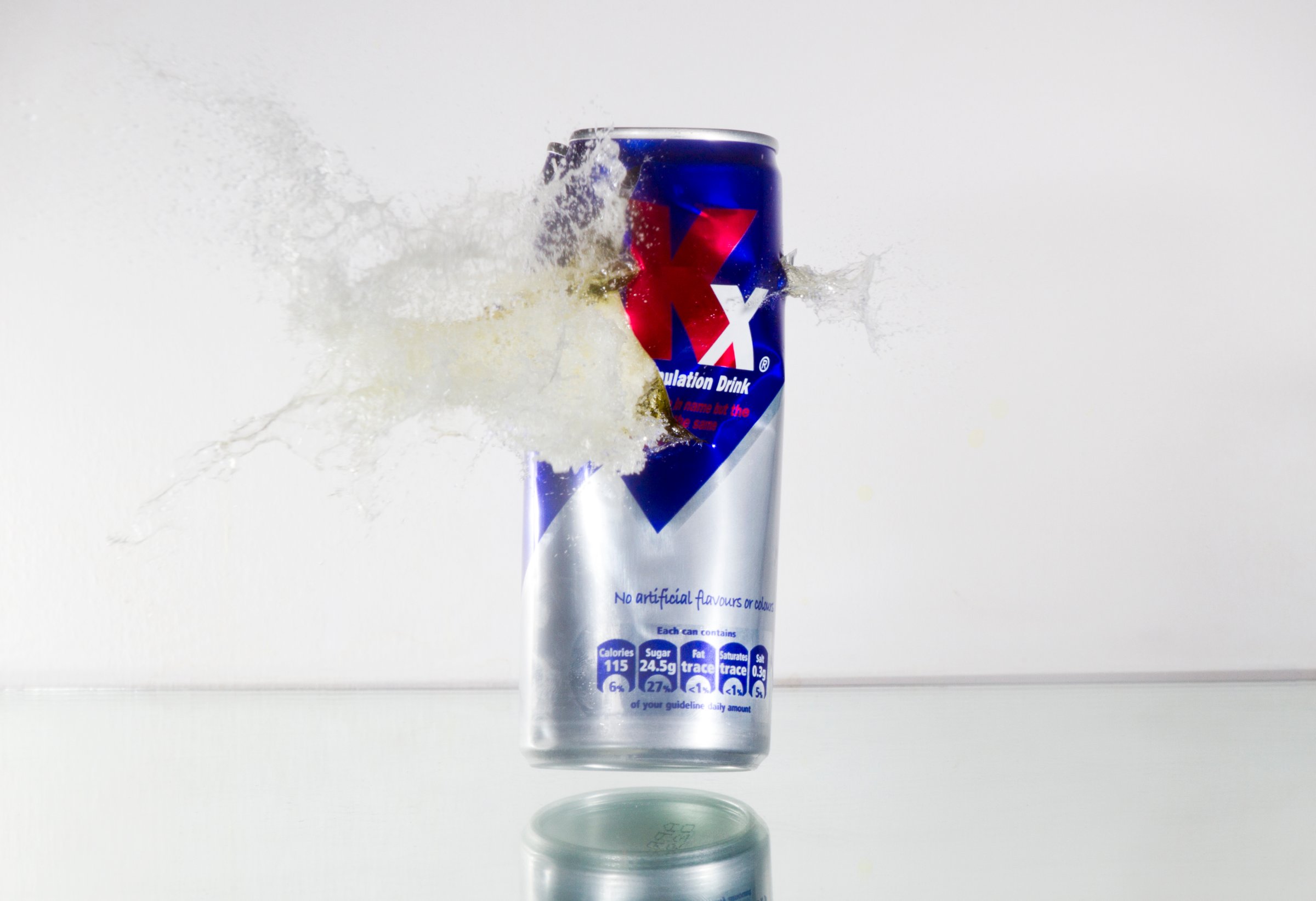
Energy drinks are known for their high caffeine content, which often tops that of soda and even coffee. But they seem to affect people’s hearts and blood pressure differently than other caffeinated beverages, suggests a small new study published in the Journal of the American Heart Association.
In the study, researchers divided 18 men and women into two groups. Half were given a 32-ounce commercially available energy drink with 320 mg of caffeine, as well as other ingredients like taurine and ginseng (both dietary supplements). People in the other group were given a soda-like control drink of the same size that contained the same amount of caffeine with a bit of lime juice, cherry syrup and carbonated water. After six days, the groups switched and drank the other beverage.
The researchers measured everyone’s blood pressure at the start of the study and one, two, four, six and 24 hours after drinking the beverage. They also measured everyone’s heart activity using an electrocardiogram.
MORE: Energy Drinks Have Doctors Worried
People who drank the energy drinks had a QT interval—meaning the time it takes the heart’s ventricles to prepare to beat again—10-milliseconds higher than those who drank the caffeinated control beverages. Irregularity in the QT interval can sometimes lead to abnormal heart beats. Fletcher says that the disparity may be important, since some medications that affect the QT interval by 6 milliseconds carry warning labels.
Both groups had higher blood pressure after their drinks, though never out of normal range. The blood pressure of people who had the control drink returned to baseline levels after six hours. But when people drank the energy beverage, their blood pressure remained elevated for more than six hours. The researchers believe that could mean that the other ingredients in energy drinks may alter blood pressure beyond the effects of caffeine alone.
“What the growing body of evidence is pointing to is that there are effects on the heart that are different than caffeine alone,” says study author Emily Fletcher, a deputy pharmacy flight commander from David Grant U.S.A.F. Medical Center at Travis Air Force Base in California. “Consumers should be aware that drinking an energy drink is not the same as drinking coffee or soda.”
More research is needed. The study was small, and researchers only looked at the effects of the beverages on people who were healthy—and not at the differences over the long term. The American Beverage Association, which represents the non-alcoholic beverage industry, said in a statement that “energy drinks have been extensively studied and confirmed safe for consumption by government safety authorities worldwide including a recent review by the European Food Safety Authority.”
Fletcher says that the findings suggest people should approach energy drinks with some caution, especially those who have risk factors for heart issues. “I would recommend only moderate consumption of energy drinks and particular avoidance in people with underlying cardiac disease or hypertension,” says Fletcher, “or during activities that would also increase your blood pressure and heart rate, such as exercise or sports.”
More Must-Reads From TIME
- The 100 Most Influential People of 2024
- Coco Gauff Is Playing for Herself Now
- Scenes From Pro-Palestinian Encampments Across U.S. Universities
- 6 Compliments That Land Every Time
- If You're Dating Right Now , You're Brave: Column
- The AI That Could Heal a Divided Internet
- Fallout Is a Brilliant Model for the Future of Video Game Adaptations
- Want Weekly Recs on What to Watch, Read, and More? Sign Up for Worth Your Time
Contact us at letters@time.com